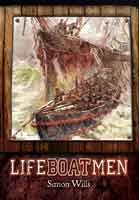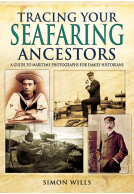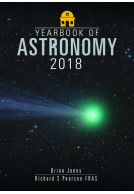A History of Birds (Paperback)
Imprint: White Owl
Pages: 160
Illustrations: 120
ISBN: 9781526701558
Published: 8th November 2017
Top Choice - Family Tree magazine
'Illustrated with beautiful clear photographs and historic prints of the birds in question, this book is a treat for those with a love of wildlife and history' - review by editor Helen Tovey, January 2018
(click here for international delivery rates)
Need a currency converter? Check XE.com for live rates
| Other formats available | Price |
|---|---|
| A History of Birds ePub (44.0 MB) Add to Basket | £6.99 |
Even the most well-informed wildlife enthusiast will be entertained by the stories and fascinating facts in the beautifully illustrated book.
Our ancestors hunted, tamed, worshipped and depicted birds, and even bestowed magical properties upon them. Why did ancient writers consider the sparrow a lustful creature? Which bird was killed and hung up to predict the weather? And what was an 'arse-foot'?
Wildlife photographer and history journalist Simon Wills explores the intriguing and at times bizarre stories behind our relationship with birds. Find out why robins feature on Christmas cards, and how Mozart was persuaded to keep a pet starling. What bird did Florence Nightingale carry around in her pocket? How did the blue tit get its name?
Whole careers have been created around birds – from falconers to ostrich farmers – and birds have had great symbolic importance too. Discover, for example, why Raleigh bicycles carry a heron logo and why church lectems are in the shape of an eagle.
If you enjoy wildlife, then this book is full of surprises. Pigeons were trained to carry messages in wartime, but could gulls be taught to hunt U-boats? And which American president's parrot started swearing at his funeral?
As featured in
Family Tree
Author as featured in
Britain
As featured in
Family Tree
Author featured in
Family Tree
As featured in
Family Tree
As featured in
Family Tree
As featured in
Family Tree September 2021 Edition
Author article ‘Netting your ancestors’ as featured by
Family Tree, March 2021
Author article: 'What is DNA?' as featured by
Family Tree, February 2020
Acknowledged at the end of author article 'Tracing Lifeboatmen'
Family Tree, October 2019
Acknowledged at the end of author article 'Tramps, tinkers & travellers'
Family Tree, September 2019
As featured on My Good Planet
My Good Planet
Author article: Researching your ancestors' mental health as featured by
Family Tree, January 2019
Simon Willis chooses 30 species (eg Blue Tit, Lapwing) and groups of birds (eagles, flamingos) and tells us interesting things about them and about people connected to them.
Sunday Book Review, Mark Avery
This book is beautifully illustrated with a mixture of artwork and photographs. They are all nicely reproduced and are well chosen to illustrate what is written in the text.
The title is slightly misleading, and I think slightly off-putting, as this is essentially a pot pourri of historical tales and modern anecdotes. If you are interested in birds, and their interactions with people, or more correctly our interactions with them, then this is a book for you. It was a book for me and I learned quite a bit, was reminded of things I vaguely knew already and found it a pleasure to read. If you know someone who is interested in birds then this might be a potential Christmas present for them.
***** A real delight!
Amazon Review
I have to agree that this is a wonderful book visually and in content too. A real treat to settle down with on a winter's afternoon. It contains lots of long forgotten gems of information and brings alive the cultural appreciation of many everyday and less common birds which would have been commonplace but which is now largely unknown. A real delight!
***** More than just another book about birds.
Amazon Review
A great book to dip into with fascinating facts and stories. The photographs are excellent too. More than just another book about birds.
'Simon Wills learns about a fascinating Scottish family history society project to capture the stories of local convicts over a period of nearly a century'
Family Tree, June 2018
Article: 'Simon Wills explains how the abuse of wild birds for the 19th-century trade in feathers caused the rise of wildlife conservation as featured by
WDYTYA?, May 2018
Author article 'Headstone hunter' as featured in
Family Tree, April 2018
Simon Wills has put together a well-illustrated analysis of our feathered friends through time.
Evergreen, Spring 2018
Nature/Bird lovers be warned, this book is awesome! I loved that this was not your typical bird book that just told you a few facts, then went to the next species. This book goes so much further than that, and tells the reader a deeper history of different species with interesting facts that I never knew before! The photos within this book are beautiful, and all in all this books was very entertaining, and informative!
Travis Powell, Tumblr (@biblioshark)
ANOTHER book about myths and ancient stories, the origins of bird names and cultural and literary references to birds? Yes - but there's always room for one more if it is well written, well presented and has plenty of 'different' material among some of the more well-known facts and figures.
Bird Watch, March 2018
This one meets the criteria and is a pleasing and often illuminating book with many examples of historical connections with birds, from Queen Victoria's parrots and the Prince of Wales's feathers to Kellogg's cockerel and recipes for flamingos.
In a new book A History of Birds,
Village Publications
Wildlife photographer and history
journalist Simon Wills explores the
intriguing and at times bizarre stories
behind our relationship with birds. Based
on careful research the author tells the
history of familiar birds from ancient
times to the present day. From Herons
being the Egyptian bird-god, to Pigeon
racing today. Whole careers have been
created around birds – from falconers to
ostrich farmers – and birds have had
great symbolic importance too. Discover,
for example, why Raleigh bicycles carry
a heron logo and why church lecterns are
in the shape of an eagle. Find out why
robins feature on Christmas cards, and
how Mozart was persuaded to keep a pet
starling. What bird did Florence
Nightingale carry around in her pocket?
How did the blue tit get its name?
If you are interested in birds, wildlife in
general or just history, this beautifully
illustrated book will fascinate you with
the facts it contains.
This unusual text provides a fascinating history of 30 different types of birds, arranged alphabetically from the blackbird to the woodpecker. Rather than share basic facts on various bird species, journalist and wildlife photographer Wills has compiled some intriguing stories from the history of the human relationship with birds, including their symbolism in art, literature, religion, and folklore. The entries range in length from two to eight pages and abound with quirky anecdotes from history. For example, the entry on parrots reveals that the bird has been a popular pet for U.S. presidents. Andrew Jackson owned a parrot, Poll, that picked up some of his more colorful language. Poll was present at his funeral—and had to be physically removed because of her swearing. Annotated historical images, photographs (by the author), and drawings of the featured birds appear throughout the book, as well as text boxes that highlight certain historical interactions. This captivating book will delight bird fans.
Booklist
This volume is readable and well-researched... ‘Bird lovers’ of all persuasions and interest-levels are likely to find it a delight and it could well become a standard reference work with their libraries. Readers who simply see a bird and want to learn about it, are also likely to find this volume of use.
NZ Crown Mines
Author article as featured in
Family Tree, February 2018
Author article on finding Peterloo roots as featured in
Family Tree, January 2018
About Dr Simon Wills
Dr SIMON WILLS is a genealogist, historian and journalist and a regular contributor to Family Tree, the BBC’s Who Do You Think You Are? and other magazines. He writes mainly about maritime history and genealogy, but he also has a special interest in health and disease in the past. He has given presentations and interviews all around the UK for history, genealogy and literary festivals, and for organisations such as the BBC, National Trust and National Archives. His most recent publications include a guide to maritime photographs, Tracing Your Seafaring Ancestors, and a popular account of our forebears' illnesses, How Our Ancestors Died.





















